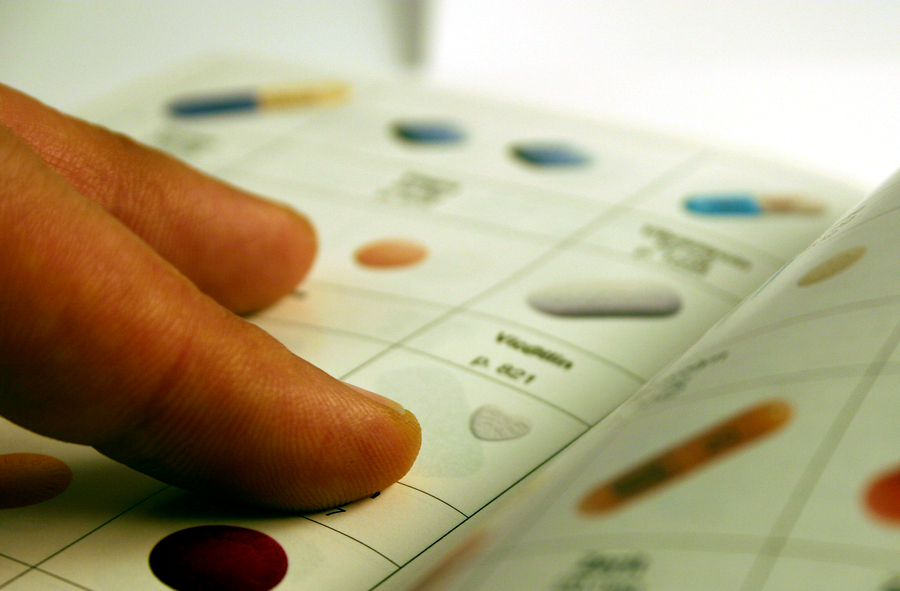
Bipolar disorder is one of the most well-known mental illnesses. Frequently used as a plot point in literature, as well as TV shows and movies, it is characterized by phases of intense highs and lows. Otherwise known as mania and depression.
Mania causes an individual to feel intense happiness, boundless energy, and confidence. The person may have delusions of grandeur or begin seeing patterns in everyday events.
Mania often leads to impulsive or reckless behavior which can have long-lasting consequences in the person’s life.
Depression usually follows a period of mania, and typically exhibits like any major depressive episode. The person may struggle to feel pleasure, see meaning in life, or get out of bed. They may experience suicidal thoughts and urges towards self-destructive behavior.
Different Kinds of Bipolar Disorder
What we’ve described is actually just one type of bipolar disorder. There are, in fact, multiple kinds of bipolar disorder, including bipolar 2 disorder. While it shares many similarities with bipolar 1 disorder, there are significant differences. Knowing the difference is helpful in recognizing symptoms of bipolar 2 disorder in yourself or your loved one.
What is Bipolar 2 Disorder?
An individual suffering from bipolar 2 disorder goes through long, severe phases of depression. However, they do not experience the mania of bipolar 1. Rather, they experience “hypomania.”
This is a kind of mania that is less severe. It is characterized by elevated mood, increased confidence, and energy, along with a decreased need to sleep. But it does not usually prevent the person from normal functioning. They are unlikely to suffer from delusional thinking or hallucinations.
Although hypomania does not have to stop a person from functioning or going to work, it can still have significantly harmful effects. With the elevated mood and increased confidence of hypomania, one is prone to making reckless and impulsive decisions. One may also begin to think of oneself unrealistically – as extremely intelligent and incisive, or the only person thinking clearly. This is unlike the delusions of grandeur of someone going in a full manic phase, but can nonetheless wreak havoc on careers and relationships.
Do You Have Bipolar 2 Disorder?
Bipolar 2 disorder often goes undiagnosed because of the absence of the severity of mania. Many individuals diagnosed with chronic depression are later diagnosed with bipolar 2. Hypomania is more easily recognized in retrospect than during the phase itself.
If you have looked back on a recent period of your life and been unable to account for reckless decisions, hypomania may be to blame. This is particularly likely if that period was followed by a severe depression.
Depression and mania are not types of feelings. Rather, they are states of mind. Hypomania is no different. Thus, feeling good and confident are not necessarily signs of hypomania. However, feeling like your confidence will never run out and you’ll never feel sad, or racing thoughts that are difficult to slow down, can be characteristic of hypomania.
Treating Bipolar 2 Disorder
Bipolar 2 disorder is treated with a combination of medication and therapy.

Medications
Medications may include antidepressants as prescribed to other patients with major depression. Whereas with bipolar 1 disorder, antidepressants may trigger or worsen manic episodes, the same is not thought to be the case with hypomania.
In addition to antidepressants, individuals will be prescribed mood stabilizers, such as:
Lithium: The metal lithium can be taken in pill form and is used to treat both mania and hypomania. It may take weeks to work properly. Therefore, it is not the ideal option for many individuals with bipolar 2 disorder, who are still going to work daily rather than spending time at home or in a clinic.
Carbamazepine (Tegretol): This is an anti-seizure drug that works as a mood stabilizer for individuals with mania or hypomania.
Valproate (Depakote): Another anti-seizure drug that can level out manic or hypomanic moods.
Lamotrigine (Lamictal): Developed and used as treatment for epilepsy, lamotrigine is also effective for treating bipolar 1 and 2. It can prevent or delay phases of depression, mania, and hypomania.
Although hypomania by definition does not involve any forms of psychosis, certain antipsychotics can be helpful in treating the symptoms of both depression and hypomania. Quetiapine, known by its trade name Seroquel, is a common example.
Finally, mild tranquilizers or sedative medications (benzodiazepines) may be prescribed to lessen agitation during a hypomanic episode. However, this is a circumstantial treatment and generally will not be part of a long-term treatment.
Therapy and Support Groups
Medication can help level out an individual’s moods, but the effects of bipolar 2 go beyond the physical highs and lows. People suffering from bipolar 2 struggle with depressive thinking, have difficulty managing emotions, and may have a hard time dealing with consequences of depressive or hypomanic episodes.
Various kinds of therapy are recommended for sufferers of bipolar 2. Psychodynamic therapy is useful for making sense of a number of personal issues. Cognitive-behavioral therapy (CBT) is useful for challenging distorted thoughts.
Dialectical behavioral therapy (DBT) is particularly useful for treating bipolar 2 disorder. An eclectic approach that combines CBT techniques with Eastern mindfulness practices, DBT helps individuals learn to manage their emotions. They learn to view feelings nonjudgmentally and ride the wave of emotions without reacting or getting caught up in them.
These therapies are commonly used in mental health treatment centers as well as rehabilitation facilities. Hypomania and depression can both drive an individual towards using substances, and bipolar 2 disorder is therefore common in recovering addicts.
Individuals in treatment centers or rehabs are expected to go through a personal course of therapy, as well as attend support groups. This gives them the opportunity to deal directly with their own issues as well as learn practical skills for managing their emotions and reactions around others.
The Outlook
Bipolar 2 disorder is considered a chronic condition. An individual who has been diagnosed with the disorder may experience phases of depression and hypomania throughout their life.
However, with treatment, it can be managed so as not to negatively impact one’s life moving forward. Once on the appropriate medications and with help from a therapist, many individuals find themselves living more fulfilling, balanced lives than before the diagnosis.
It is important to note that medications prescribed for bipolar 2 disorder do not react well to alcohol and drugs. Using these substances while on medication can set an individual back significantly. Consult your psychiatrist about what you should and shouldn’t do while taking bipolar 2 medications.